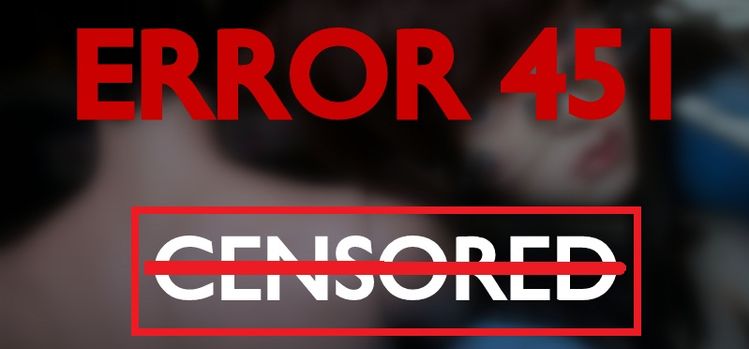Governments will no longer be able to hide restricted content across the internet. A new web status error code will notify visitors when a website has been banned due to censorship.
There are several web status codes that you might have come across during web browsing. 404 is one of the most popular error codes, displayed when a page cannot be found. Similarly error 403 is shown when access to a page is forbidden or 503 when the service is unavailable.
The Internet Engineering Steering Group (IESG) have approved a new HTTP status code, Error code 451, which will become visible when a page or website is blocked by the government or security agencies due to “legal demands”. The code was inspired by the popular dystopian Ray Bradbury novel “Fahrenheit 451”. The error page will also display “Unavailable for Legal Reason” along with the code.
Error code 451 will become visible when a page or website is blocked by the government or security agencies due to “legal demands”
The IESG, responsible for internet operating standards, said in a statement “This status code indicates that the server is denying access to the resource as a consequence of a legal demand”.
The regulatory body has advised governments to include information regarding why the website (or page) was blocked and who is responsible for the censorship. IESG also noted that “it is possible that certain legal authorities might wish to avoid transparency, and not only demand the restriction of access to certain resources, but also avoid disclosing that the demand was made.”
Before error code 451, an error “403: Forbidden” used to be displayed. If you accessed any website which have been blocked in Pakistan e.g. YouTube, you must have noticed the same error number being displayed.
The new error code was proposed by a former Google Engineer and XML specification author, Tim Bray. He said:
One of the things in the proposal is that the 451 Unavailable for Legal Reasons status is supposed to be accompanied by an explanation of what the legal restrictions are, and what class of sites they apply to.
One of the Task Force heads at the IETF HTTP Working Group, Mark Nottingham, welcomed the change and said that the code can be used effectively immediately. However he noted the same thing that there’s no guarantee that the governments or ISPs will opt use this whenever a legal binding restricts a website.
The code can be used by network based intermediaries and origin Web Servers. It’s expected to be widely used by sites like Google, Facebook, Twitter and GitHub which are often requested to censor content under legal obligations.



























So from now we should receive Error 451 on youtube in PK
We are getting 200 OK thus far without any proxy even.
Cooolll!!! :P